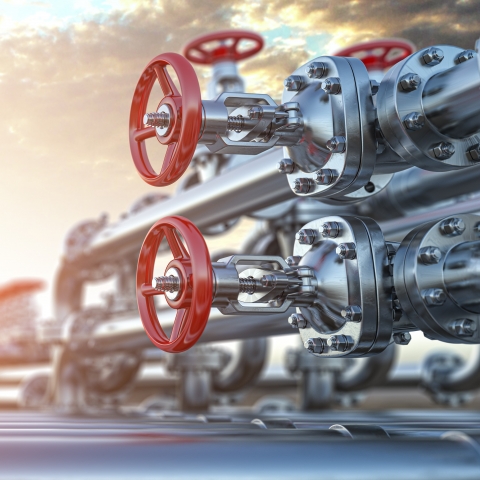EU natural gas prices soared by as much as 20% this morning, after Russian energy giant Gazprom announced yesterday it had halted gas supplies to Bulgaria and Poland for failing to pay for gas in rubles.
Poland confirmed that supplies had been cut, while Bulgaria said it would find out soon. Both accused Gazprom of breaching longstanding supply contracts.
In early April, Russian President Vladimir Putin demanded that buyers from "unfriendly" countries pay for their gas imports in rubles or be cut off, starting with payments due in April. The European Union has rejected this demand as rewriting contracts that called for payment in euros.
Poland is among Russian’s least friendly neighbors, both from a historical perspective but also due to their current support to Ukraine: they host US troops, have supplied tanks and is home to the largest number of Ukrainian refugees.
Supplies from Gazprom cover about 50% of Poland's consumption and about 90% of Bulgaria's. Poland said it did not need to draw on reserves and its gas storage was 76% full. Bulgaria has said it is in talks to try to import liquefied natural gas through Turkey and Greece.
Should other EU natural Gas buyers refuse the Kremlin’s requirement, further cutoffs are likely in the second half of May, when the next payments are due.
Poland and Bulgaria are also transit states for Russian natural gas pipelines. The Kremlin said yesterday that any illegal withdrawal will result in an equivalent cut in supply.
To the surprise of many, Bloomberg reported this morning that four European gas buyers have already paid for supplies in rubles as Russia demanded, citing a person close to the Russian gas giant. According to Reuters, Germany's Uniper and Austrian OMV are among the companies that have folded to the Kremlin's demands and thus potentially violated EU directives. The consequences of such violations remain to be seen.
Meanwhile, Hungary has struck a deal to pay into a euro- denominated account with Gazprombank in (name of country or city), which in turn will deposit the funds in rubles to Gazprom Export. Its next payment is due on May 22, he said. Slovakia seems to have reached a similar agreement.

